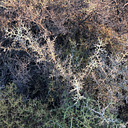Nature as media for meaningful citizen participation
What is common between social inequalities in cities and biodiversity loss in our cities?
Although social inequalities in cities and biodiversity loss in urban areas may not seem directly related, there are connections between these issues that can bring people together. One question we want to ask ourselves is how we can learn together through interactions with nature. By working on nature-related issues such as biodiversity loss in cities, people can find common ground and create new avenues for meaningful dialogue. For instance, the organization of workshops in natural settings can facilitate dialogue between citizens, stakeholders, and academic institutions. Nature can serve as a neutral medium that allows for fruitful interactions between various stakeholders, leading to productive collaboration and innovative solutions.
It turns out that citizen science activities already provide a playground for facilitating media to become a new media for meaningful citizen participation.
Stories of how events around nature in our cities are creating new possibilities for people to connect to each other
In cities worldwide, common events are organized (using City Nature Challenge) every year towards the end of April by people from various communities. CNCs can be considered using more broad perspective on nature-human interactions, and analyzed using broader scope of nature based solutions.
Nature based solutions and citizen science
Many people have been discussing broadly about how to define the term “nature based solutions (NBS)”. It has been over- and miss-used in various contexts, troubling experts in urbanism and architecture, creating barriers for implementing some of the solutions as a whole. Here we try to link it to specific subject and discuss in the scope with citizens participation.
- Usually NBS were thought as something where human interventions are minimal and system (urban or rural) is coming to its stable state almost by itself. UNEP proposes yet another definition, which contains actions that protect, sustainably manage, and restore natural or modified ecosystems while simultaneously providing human benefits. These benefits can include but are not limited to clean air and water, food security, climate regulation, and disaster risk reduction. This holistic approach to NBS emphasizes the interdependence between humans and nature, and the need to work together to achieve a sustainable future.
- Contemplative citizen science proposes a new paradigm of citizens contributions: take a walk in a park, take a moment to breath, notice that there is some nature around you, maybe this nature is a unique plant, which may be the last one from its kind, or maybe it is nettles, which everyone has in their gardens. Nature allows to create this unique space of “remembering to breathe”.
Read more:
On contemplative activism and residency program in Life Itself in 2021.
The map of citizen participation in City Nature challenge in France in April 2023 is here.
